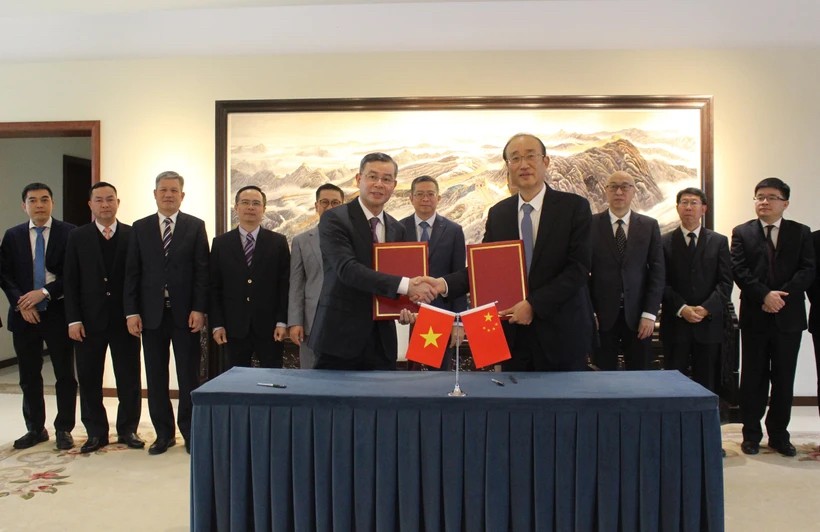Switzerland Abolishes Import Tax on Industrial Goods: Opportunities And Challenges For Vietnamese Goods
 |
| Switzerland's abolition of import taxes on industrial goods will make Vietnamese products equal to all other countries. |
Abolishing import taxes on industrial goods
On the evening of January 3, the Vietnam Trade Office in Switzerland said that from January 1, 2024, industrial products will officially be exempt from import tax into Switzerland, regardless of origin. This is an important trade policy, implemented by this country after many years of research and preparation.
Specifically, according to the Trade Office, in Switzerland, industrial products include intermediate input products for the production process such as raw materials, semi-finished products, machinery and equipment, as well as consumer goods such as vehicles, household appliances, clothing, and footwear will be exempt from import tax.
However, agricultural products, including live animals and plants, food, processed agricultural products, seeds, animal feed, and aquatic products are not considered industrial products. Therefore, import taxes still apply to these products.
According to the Trade Office, in addition to abolishing import taxes on industrial goods, Switzerland also made a number of changes to simplify customs tariffs and regulations on proof of origin.
For example, previously, children's leather shoes had HS code 6403.5910, and were subject to a normal import tax of CHF 173 (US$203) per 100 kg. From January 1, 2024, the tax rate is 0, and they will be grouped with other types in group HS 6403.5900.
"The removal of import tax on industrial goods does not change the customs clearance process. Importers still have to declare imports and pay other fees and charges incurred when importing, including VAT," the Trade Office noted.
Assessing the impact of this policy on Vietnamese goods, citing data from Swiss Customs, the Vietnam Trade Office said that industrial goods, on average, account for about 90-93% of the country's total annual import turnover from Vietnam. Many of these products enjoy Swiss GSP (Generalized System of Preferences) tax incentives.
"Switzerland's abolition of import taxes on industrial goods will make Vietnamese products equal to all other countries. There will no longer be any advantages (compared to countries that do not enjoy GSP, for example) or tax disadvantages," the Trade Office commented, saying that for some products such as textiles, garments, leather and footwear, Vietnamese goods will benefit more than competitors from many other markets.
 |
| Photo: MOIT |
Measure regulating import taxes
The decision to abolish import taxes on industrial goods was made by the Swiss Parliament in October 2021 by amending the Customs Tax Law. At the Government meeting in February 2022, the Swiss Government decided that this measure will take effect on January 1, 2024.
The Vietnam Trade Office in Switzerland believes that, with this measure, Switzerland, as a highly open economy, is sending a clear message to support and promote open trade in the context of a protectionist global trade environment.
The Swiss government will review the impact of this measure on domestic prices of relevant products through a monitoring program.
During the preparation process, the Swiss Government conducted studies on the impact of abolishing import taxes on industrial goods.
The benefits to the economy are estimated at CHF 860 million (about US$1 billion) based on 2016 trade figures.
This figure includes approximately CHF 490 million (US$575.25 million) in direct tax savings for businesses and approximately CHF 100 million (US$117.39 million) in savings from reduced administrative costs. Added to this are indirect impacts, such as increased productivity for businesses, estimated to be worth around CHF 270 million (US$316.97 million).
Based on updated 2022 figures for Swiss imports, direct tax savings for businesses could amount to around CHF 600 million (US$680 million).
The Swiss government has not introduced any direct measures to compensate for the loss of customs duties following the abolition of import duties on industrial goods.
According to preliminary studies, the removal of import taxes on industrial goods is expected to increase economic output and thus indirectly increase other tax revenues, offseting about 30% of the loss in customs tax revenue in the coming years.
Looking at the Swiss economy as a whole, the positive effects will be significantly larger than the expected tax revenue loss.
According to experts, this new policy contributes to reducing the financial and administrative burden for both Swiss businesses and consumers, thereby improving Switzerland's position as an economic, commercial and industrial center.
This policy also helps Swiss industry have easier access to raw materials and input products, with greater competitiveness and diversification. This contributes to improving the productivity and competitiveness of Swiss companies, both at home and abroad.
 | Vietnamese Community in Switzerland Tightens Solidarity The Switzerland-Vietnam Friendship Association annually holds a Solidarity Day with Vietnam in Zurich city to raise funds for its charitable activities. |
 | Vietnam Wishes to Increase Health Cooperation with Switzerland Minister of Health Dao Hong Lan received Thomas Gass, Swiss Ambassador in Vietnam, to discuss a number of cooperation contents in the field of health. |
 | Popularizing Vietnamese Traditional Martial Art in Europe Vovinam Viet Vo Dao (Vietnamese martial art) is currently developing in nearly 70 countries, contributing to strengthening cultural cooperation and people-to-people exchanges between Vietnam and ... |







